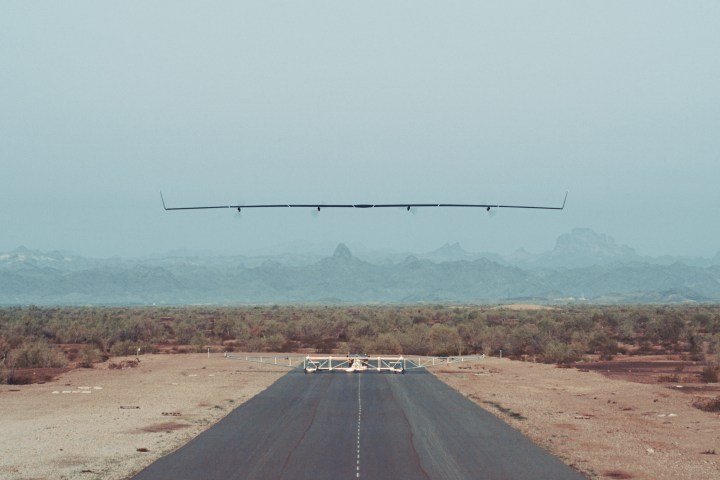
According to Martin Gomez, the company’s head of aeronautical platforms, a number of interested parties are eager to host test flights. Facebook has not revealed any names as of yet, but Gomez claims they represent regions where connectivity is low or nonexistent in rural locations.
“Some of the countries that are really clamoring to host this first demo have huge regions where there is zero or very poor internet connectivity,” Gomez told the Royal Aeronautical Society on Monday.
As part of the trial process — which has a tentative kickoff date set for 2018 — Facebook will have to build ground control stations atop large airfields and hangars in the host countries. These locations will house both the drones and their operators, allowing the latter to communicate with air traffic control agencies, reports The Register. The plan is to have “thousands of aircraft flying around the world,” said Gomez.
Facebook has reason to be confident. In July, the company successfully completed the first test flight of its solar-powered Aquila drone. Eventually the UAVs will fly at an altitude of 60,000 feet for months at a time, beaming down internet wherever they roam.
The drones are integral to Facebook CEO Mark Zuckerberg’s vision of a connected world. On the ground,
However, the strategy has faced its fair share of stumbling blocks. Free Basics has come under fire in Egypt, and is blocked in India, which claims it violates net neutrality principles. To make matters worse, in September Facebook lost its Amos-6 satellite when the SpaceX Falcon 9 rocket that was carrying it exploded.
Overall, the signs indicate that despite the setbacks Facebook remains committed to its vision and is actively working on the disparate parts that could make it a reality.


